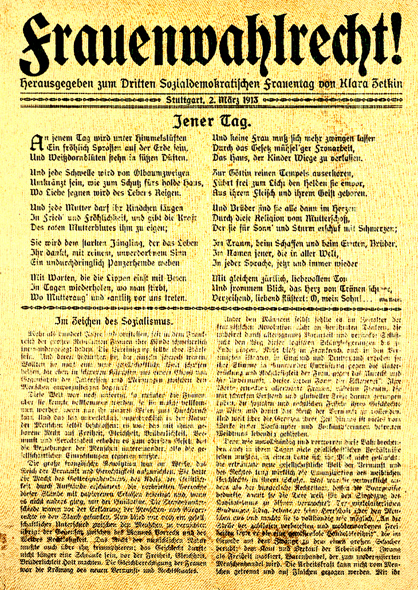Source
The poem reads: That Day Translation: Richard Petit
On that day under heavenly skies
Flowers will
sprout merrily on the earth,
And hawthorn blossoms will sweeten the
air.
And every threshold will be crowned with
Olive branches
to protect the handsome house,
Where love will bless the dance of
life.
And every mother may suckle her child
In peace and
happiness, giving to it the
Strength of her red mother’s
blood;
In a pure, unspoiled manner she will weave
This hardy
youth, who owes her his life,
An impenetrable coat of
armor,
With words, which one day quivering lips
Will repeat,
when death comes and when
Our mother’s eyes and face appear before
us.
And no woman will have to force herself
By dint of
exhausting women’s work
To leave the house and her child’s
cradle.
Chosen to be goddess of the purest temple,
She leads
the hero, born of her flesh and spirit,
Freely upwards towards the
light.
And all are then brothers at heart
Through this
religion of the mother’s womb,
Which created them in pain for sun
and storm;
Brothers, in a dream, at work and at the
harvest,
In the name of those, who throughout the world,
In
every language, now and again and again,
With the same tender,
loving tone,
And righteous gaze, the heart heavy with
tears,
Whisper lovingly and forgiving: Oh, my son! . . . – Ada
Neart
Source: © Deutsches Historisches Museum